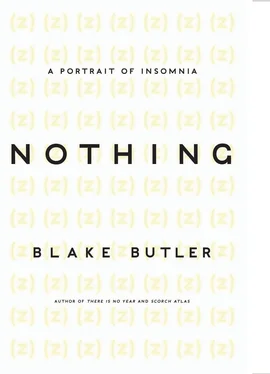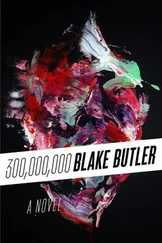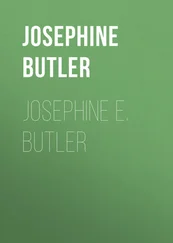Every inch of me like these my mother transcribed in years before I in my own head can remember has been somewhere inside me ever since. So much of this I would not have recalled without devices, the photographs and speech. I only know what I have done so many days and hours of my life because there is the image and the word passed on, held in totems, symbols, other bodies. Most of these moments remain unnamed. The day passes fast and silent, unseen. Even up to here inside this sentence, typing, there are minutes having just blipped by that I will never think about again — this instant my right now and then my gone , and the instant ever-coming, still there buried in the blood, and cropping up in glossed ways in incidental scrimmage or in my sleep brain, where all days feels the same day, and how a house at night might seem to pause. I do remember countless nights when, alone, still up haunted by doors or tapes or thinking well after my parents had killed the lights and gone to bed, I lay still inside the air holding my own breath, gauging our home’s false-seeming sense of silence for any small intimation of sound, watching the empty space for what might suddenly occupy it — the blank by now far more terrifying than the touch. In such a way I could not go to sleep some nights until the light had risen up again and my parents were moving in the house around me, proved again alive, and light filled again the spaces of the night surrounding, night not gone but covered up , always in the process of returning, the body aging, growing tired, sometime sleeping . The house around us going on.
I can remember with equal prowess standing as a preteen in the large open room of the library we always went to with my mother down the street — in particular a day of warm light in which I stood near the main room’s center and looked along a shelf at where someone had propped a hardback copy of Stephen King’s IT so that it stood to face the room. The way the title — large blood-red letters, all caps — seemed to brand themselves upon my eyes, and above that, the coal-gray, also all-caps letters of a man’s name against a nothing. The image of the sewer grate — an open mouth into some tunnel. On the book’s back, the huge replica of the creator staring back at my own head. That day I carried the book out to our Buick against my chest, feeling its weight sat on my lungs in presence, and something itching at me through the pages, which by peeking into with my breath held, I’d see the pages all those other fingers before me had already touched. Maybe bits of hair or food or oil in there, even, though that I don’t remember. I remember the plastic sleeve over the dark jacket, making the book’s face seem as if removed from what it had been once: a copy of a copy, under glass. Back at home I took the book to my bedroom and I locked the door behind me. I sat at the desk installed into an alcove in the wall and laid the book down at the center under the long fluorescent light. For some long period in its presence I could not bring myself even to move. I could not lift the cover. I sat before the book and looked. I went and lay down on the bed and felt the book seeing me not looking. At some point I might have gotten up and tried to read the first sentence, tricking open: The terror, which would not end for another twenty-eight years — if it ever did end — began, so far as I know or can tell… All throughout the night the book was there. It was not changing. It could see. The whole evening went on this way. And late into that evening, when the light through windows turned to nothing leaving the neon bulb only to shine off of the horrid fat thing’s sleeve. And even with that light off I could not sleep with the book still there, unopened, worming its way into whatever future sleep sometime might try to come. To this day the book remains in me unread, the first of many objects seemingly having been designed to keep me awake, aware, forever, a shapeless presence feeding itself on itself inside my flesh.
And as more time comes and is and is, each day gives us more of us to hide, more crud to exist with in the same space we walk around in every hour, more terror welled up in the self itself. Soon and for years inside the night with walls around me I found I could not bring myself to face a mirror in the dark, seeing not the mirror or me in it, but the space where I knew the mirror there must be, its reflection hidden, something unnamed caught behind its glass. Other evenings I would find it hard to look out through a window, sensing people out there walking past the house, or watching cars churning by onward to wherever, people soft beneath the windows sitting there in the machine, people I would never come so near thereafter — each night in this way the same shape, spent repeating — the present, passed again — if there among it somewhere, in the passing, a silent common air, an indexed map — space through which the shape of who we are each instant in our aging must come and go, while in the shifting light we hope to sleep and wake a bit and sleep again. Among such shifts the sleeping keeps us cleaner, allows brief repose as the air of all around goes on alive, underneath us and surrounding, in all houses: a spreading corridor of furtive magic masked in the common, any day — an instant stretched beyond its present as when (a) approaching a room’s mirror, the lurch between the act of expectation and the seeing of the self; (b) the text of all the books surrounding, never opened, in any home or store, those sentences in terror silence; and as well, the words slipped by the mind when in really reading, the mind blanks out, and still can see ; (c) the milliseconds surrendered between blinking, which when added up assume a portion of one’s life; the brutal intrusions of fact; (d) the frequencies of sound we cannot hear but that come against our skin and in our ears regardless; (e) the presences behind all walls and walls unseen, within inches without seeing, and contained as well on all our film; the body behind the window in the scene inside the film we’ve seen the most, and the film we fell asleep in, and the film we’ve never seen; (f) the groan of trees, the scream of meat; (g) the corridors of sleep space left unremembered, or as fragments, drowned awake; the unlisted (h) and (i) and (j), and going on and subdividing further, beyond (z)(z)(z)(z)(z) — all of this surrounding every hour, smushed and smushing, in an air-shaped kind of frameless case, the skin and cells we walk around in, hovered among days.
And still the selves go on regardless, aggregating, blanking.
And still the self itself cannot be seen.
“You just arrive in a place,” said the painter, “and then you leave it again, and yet everything, every single object you take in, is the sum of its prehistory. The older you become, the less you think about the connections you’ve already established. Table, cow, sky, stream, stone, tree, they’ve all been studied… a vast ornament of space, nothing else. Humble backgrounds, vast replications — you see you were always lost. As you get older, thinking becomes a tormenting reference mechanism… I say ‘house,’ and I see cities with their seas of roofs. I say ‘snow,’ and I see oceans of it. A thought sets off the whole thing.”
— Thomas Bernhard, Frost
What a House Is, How a Body Fits Inside It
The initial wanted instinct upon first hitting the pillow is to be blank — as near as possible to nothing, silent, sloping open to the night. For many, on normal evenings, the effort ends where it begins. There is no deliberation. The door opens, becomes gone. If I’d never slept near other people, on road trips in hotel rooms with friends who hit the pillow and instantly black out, I might have never realized my dysfunction, despite night never seeming right: always most awake at points of ending, then rising tired to the world — a continuum reversed. Whereas for some sleep is a question of becoming horizontal — entering the rest afforded by a suspension of voluntary bodily functions and the natural suspension, complete or partial, of consciousness —for others, when we hit the bed, the head begins; the brain coming on inside the worn down body as if to spite it, to remind the flesh that it contains something inexpressible, uncontainable, to itself; the persons hid inside our person coming on at our softest moment, ready, at last, to reign. The brain inside this shape might seem to seethe against the inside of the skull, warming hard against the pillow in the gel of uncontrollable impending thought: the body’s fleshy defense defused by its own system of alarm. Hello , it says. How are you. I knew you’d come around. Here you’ve been pretending I and all the thoughts you’ve been avoiding weren’t here, or could fuck off. Now you’re tired. Open. Now you’re mine.
Читать дальше












